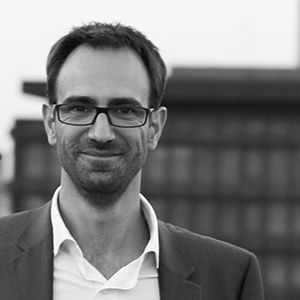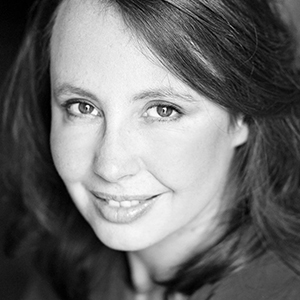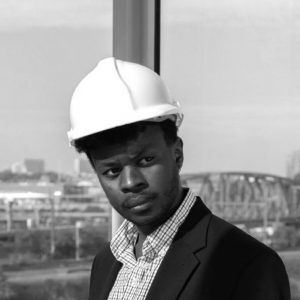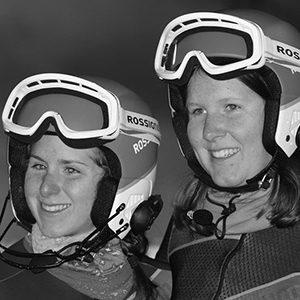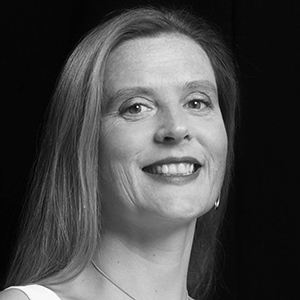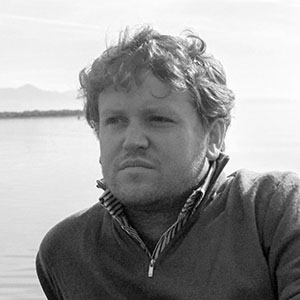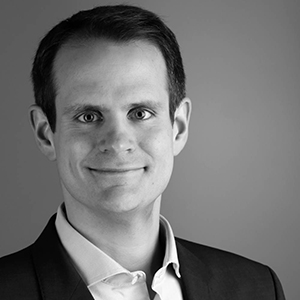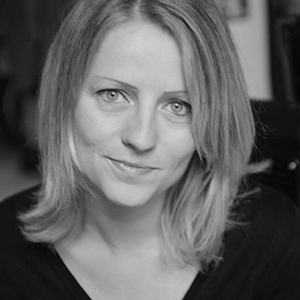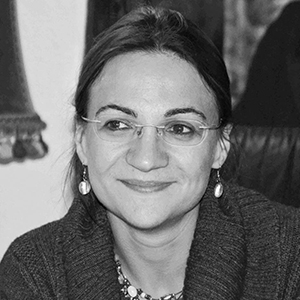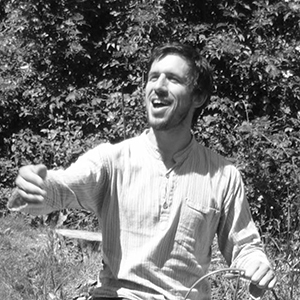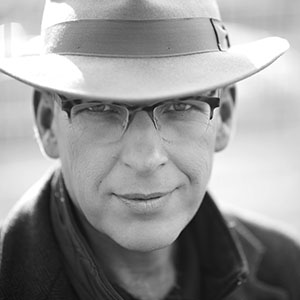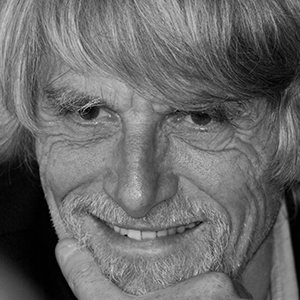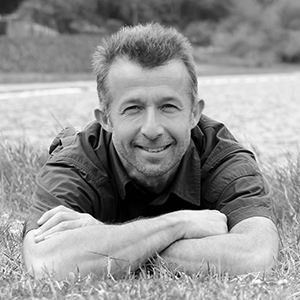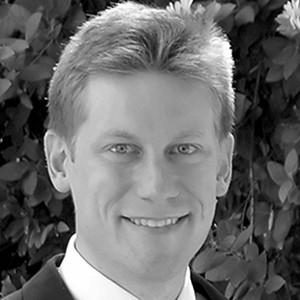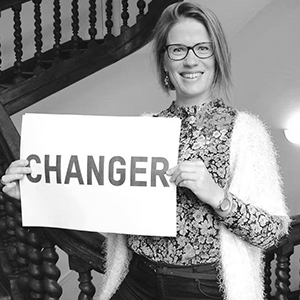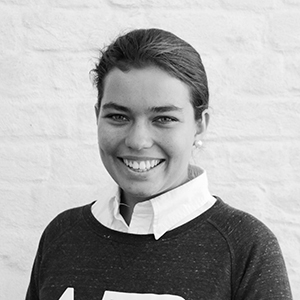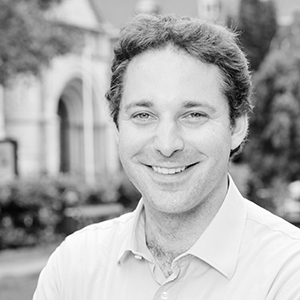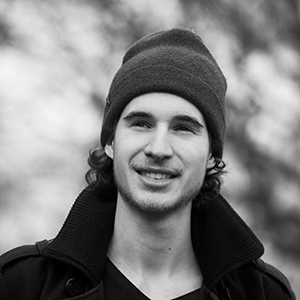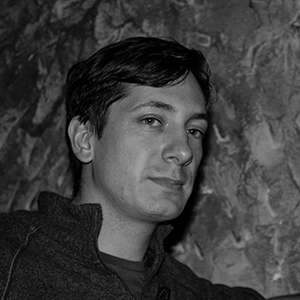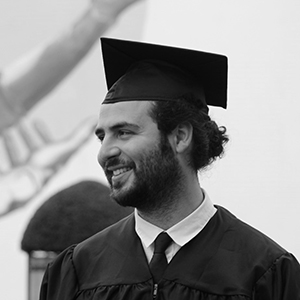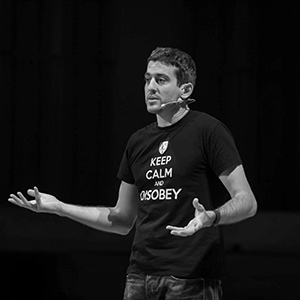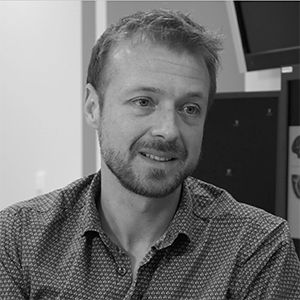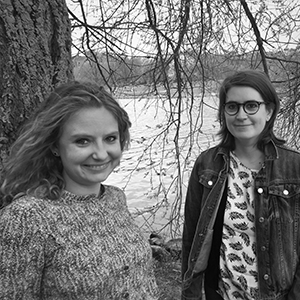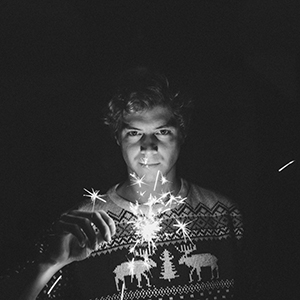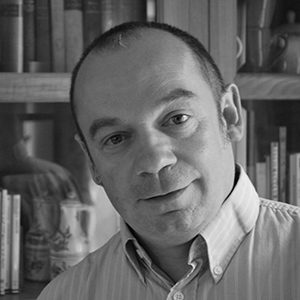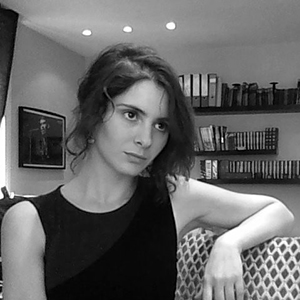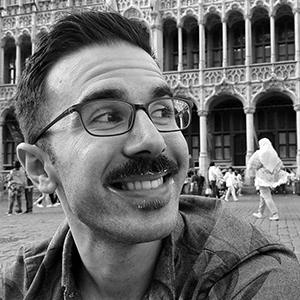(Re)découvrez ici les speakers des années précédentes ainsi que leurs talks.



Open hardware et co-création pour des prothèses plus abordables
Benoît Herman
Edition 2016
Benoît Herman est un partisan enthousiaste des communautés « open source » qui collaborent pour la création de prothèses mécaniques et myoélectriques ; son ambition serait de construire un monde avec moins d’inégalité concernant l’accès aux soins de santé.
L’infobésité tue la communication !
Caroline Sauvajol-Rialland
Edition 2016
Caroline Sauvajol-Rialland est particulièrement attentive aux effets négatifs des technologies de l’information et de la communication qui, parallèlement à la promesse de nous simplifier la vie, nous ont conduits à une nouvelle forme de pression constituée de tâches intellectuelles répétitives. Elle rêve que, demain, l’entreprise numérique puisse être à la fois efficiente, collaborative et motivante. Si la communication et les technologies peuvent constituer une chance pour les individus et les organisations, encore faut-il pouvoir la saisir !
L'utopie peut-elle révolutionner la musique ?
David Nzeyimana & Fortune Collective
Edition 2016
Les collaborations entre artistes peuvent déborder les frontières du domaine musical et faire ainsi se rencontrer, par exemple, un groupe de pop, un chocolatier, un parfumier et un plasticien, ou un danseur, un chanteur et un bijoutier, ou un guitariste et un architecte, le tout dans des lieux inhabituels et originaux, qui renouvellent les formes de l’espace scénique. Et si la musique cessait d’être uniquement l’apanage des musiciens, pour s’ouvrir à toutes et à tous ?
Soeurs de glisse
Éléonor & Chloé Sana
Edition 2016
On a tous des rêves. Celui d’Eléonor est de participer à la plus prestigieuse des compétitions sportives au monde. Cette jeune Belge pétillante prépare sans relâche sa sélection en ski alpin pour les Jeux de 2018 en Corée du Sud. Eléonor est malvoyante, c’est donc avec sa guide, Chloé, sa sœur, sa sœur de glisse qu’elle dévale les pistes du monde entier. Incroyable ? Peut-être. Impossible ? Ce mot ne fait pas partie du vocabulaire d’Eléonor et de Chloé…
Comment donner aux jeunes Belges le goût d’apprendre la langue de l’Autre ?
Françoise Masuy
Edition 2016
Les émotions jouent un rôle essentiel de frein ou de moteur dans l’apprentissage des langues. Or, en Belgique, la politique crée un climat tendu entre les communautés linguistiques. Professeur de français langue étrangère, Françoise Masuy invite les jeunes à inverser le courant et à partager ce qui les fait vibrer dans leur région en s’exprimant dans la langue de l’Autre (en allemand, en néerlandais ou en français). C’est ainsi qu’est né le site “Belgium on stage”, site ludique, trilingue, fait par et pour les 17-24 ans. Une utopie belge qui pourrait inspirer d’autres pays où existent des tensions linguistiques…
How telecom data can radically change the way development aid works
Gautier Krings
Edition 2016
Data scientist Gautier Krings explores how telecom data is used to improve living conditions in developing countries. Subscribers are spending on average ninety minutes per day on their phones. Never before has so much unbiased and real-time information been available to make social development decisions. Telecom data is an opportunity for developing nations; combined with the right apps, they can address issues like fighting epidemics, urban planning or reducing poverty.
Great leadership starts with self-leadership
Lars Sudmann
Edition 2016
At TEDxUtopia, the question was asked: What would leadership in Utopia look like? To start with, imagine the best leader you have ever worked with. How did he or she get to become this type of leader? Leadership lecturer and former corporate executive Lars Sudmann argues that it’s likely that they learned to overcome the “leadership formula of doom” and then developed themselves as a leader. In this funny and invigorating talk Lars walks us through the personal journeys of great leaders, shows lessons from the golden age of leadership and shares 3 strategies on self-leadership to develop yourself into a “Utopia leader”.
A Peek into the Classroom of Tomorrow
Louise-Amélie Cougnon
Edition 2016
Louise-Amélie Cougnon believes that a pedagogical revolution will take place through the right use of technology in the classroom. The notions of flipped classrooms, peer learning and co-construction will be reinvented, not with the help of personal smart phones, tablets and laptops, but rather thanks to shared technologies, technologies that enable more connections between the students.
Améliorer son intelligence émotionnelle, pourquoi pas à l'école ?
Moïra Mikolajczak
Edition 2016
Savez-vous que votre intelligence émotionnelle n’influence pas seulement votre santé mentale mais aussi votre santé physique ? Que votre degré d’intelligence émotionnelle influence la satisfaction conjugale de votre partenaire ? Qu’elle influence vos capacités managériales ? Que l’inclusion d’un programme de développement des compétences émotionnelles à l’école permettrait d’économiser 10% des dépenses de l’état en soins de santé ?
Au-delà de quelle richesse votre bonheur s'effrite-t-il ?
Olivier Vermeulen
Edition 2016
Sauver les humains vivant sur notre planète, tel est le défi que tente de relever Olivier Vermeulen dans son quotidien. Un peu trop ambitieux le jeune homme ? A vous de voir ! Par contre, si vous regardez sa présentation, attendez-vous à être bousculé dans vos croyances personnelles, car l’utopie d’Olivier est d’instaurer collectivement un revenu maximum afin d’assurer à chacun et chacune la liberté de pouvoir mener sa conception de la vie bonne, tout simplement… Ce plafond nous empêchera-t-il d’être heureux ? Ou serait-ce justement le contraire ? Une chose est certaine, afin de partager équitablement les ressources planétaires limitées entre 7 milliards d’êtres humains, il faudra revoir les règles du jeu de notre société, et c’est plutôt urgent…
How to claim leadership? Tell your story!
Peter Perceval
Edition 2016
You want to be a leader? Get your story straight! Fiction and comedy writer Peter Perceval shares his views on applied storytelling and gives you some tools to make your own story. People have been telling stories since the beginning of time to transfer knowledge. But stories are also containers for values. The storyteller holds a powerful position in society. Leadership is actually defined by the way his or her story helps other people make sense of the world. So what’s the story through which we want to shape our own futures?
Picnic the Streets! Can an unauthorized picnic change a city?
Philippe Van Parijs
Edition 2016
In 2012, Philippe Van Parijs’ opinion piece on the need to have more public space in the city of Brussels inspired the Picnic the Streets movement. Thanks to social networks, the movement was soon joined by thousands of citizens and eventually led political authorities to transform Boulevard Anspach into a pedestrian area. Philippe shares his utopia for the capital of Belgium: more public space for everyone, a sort of “Louvain-la-Neuve in Brussels”!
Building our cities with drones… A utopia?
Pierre Latteur
Edition 2016
In this talk Pierre Latteur describes the dawn of an unprecedented revolution in construction: the replacement of men and cranes by flying robots, capable of erecting buildings in a perfectly coordinated and fully automated process.
Detect and prevent Alzheimer’s disease before the first memory loss
Bernard Hanseeuw, Neurologist
Edition 2017
After 65 years old, one out of ten have Alzheimer’s disease… Even worse, one out of three have the hallmark brain lesions of Alzheimer’s. Worrisome? Indeed. However, having lesions ten to twenty years before symptom onset is a wonderful opportunity for who wants to detect this terrible affection. From 2013, the hallmark pathologies of Alzheimer’s can be detected using a PET-scan. New research avenues are thus opening, and with them, the hope of developing preventive therapies.
Housing First : Oser le logement pour une sortie rapide et durable du sans-abrisme
Coralie Buxant, Docteure en psychologie sociale
Edition 2017
Les sans-abri les plus fragiles (santé mentale/toxicomanie) ne parviennent que difficilement à franchir les étapes successives du processus classique d’insertion. Housing First propose une alternative: l’accès immédiat et inconditionnel au logement, depuis la rue, avec un accompagnement pluridisciplinaire intensif adapté. L’expérimentation d’innovation sociale Housing First Belgium (N = 378) en a démontré son efficience et invite à penser autrement les politiques de lutte contre le sans-abrisme.
Get involved!
Diane Delava, President of AFD LLN
Edition 2017
How does civic engagement work today? Getting involved is an adventure filled with surprises, added value, some rare disappointments and mainly a lot of small steps to a better world. Based on several personal experiences but also on other sources, Diane will try to tell you why it is important to get involved and what the added value to civic engagement is. Is it the same for young people and for the younger generation?
The best investment we could ever make
Edoardo Traversa, Law professor
Edition 2017
Taxes are often depicted as excessive, unfair and abusive. This view is not untrue: history offers a wide range of examples where taxation has been used as a means of oppression or has been applied arbitrarily against people. European democracies have in the last two centuries gone through fundamental changes which have profoundly modified the role of the State, the relationship between citizens and public authorities and as a consequence, the very nature of taxation. Nevertheless, the process is far from being completed: much remains to be done to legitimize the role of taxes, not only as resources to finance public policies, but also as instruments to foster democratic participation and social inclusion.
Traveling with absolutely no money, what I have learned
Edouard Jacqmin, Musician & traveler
Edition 2017
Most of us dream about traveling. But many of us believe we can’t because of lack of money. Edouard, 24, has travelled in Eastern Europe for 21 days without spending a single cent. One day he just emptied his wallet and hit the road. Crossing 5 different countries, he learned during this incredible adventure 4 lessons we can all apply in our daily lives.
An alternative way from heat to power
Geoffrey Roy, Engineer
Edition 2017
Energy harvesting is one of the main concerns of our modern society. A huge amount of energy is wasted in industrial plants as low grade heat. Since decades, thermoelectricity is considered as a promising way to partly harvest this heat. However, strong challenges prevent its implementation in mass or large-scale applications. This talk describes how Geoffrey’s research team is tackling these challenges owing to a totally new and different approach that will lead to an industrial pilot in the next two years.
De la dictature à la post-intégration
Hazem Yabroudi, Interprète & traducteur social
Edition 2017
Le Printemps arabe en tant que changement historique avec autant de conséquences, constitue un tournant dans la vie de la jeunesse arabe: il s’agit à mes yeux d’une épreuve existentielle ! En dépit de longues années de totalitarisme, les jeunes syriens ont réussi à changer l’équation et à faire preuve d’une grande créativité. La vie de certains est devenue une aventure sans précédent (pour ne pas citer qu’un exemple, certains sont devenus des journalistes-citoyens qui reportent au monde les infos depuis le terrain de la guerre). Par ailleurs, l’aspiration à la liberté a amené beaucoup de jeunes, comme c’est mon cas, à mettre en question ce qui semblait absolu et naturel, tel que la religion et les codes de la société. D’où le comble de cette aventure quand le parcours se complète par l’immigration en Europe. Il s’agit d’un récit collectif qui voudrait être révélateur à la fois d’un imaginaire peu (re)connu que des problèmes très actuels entre Orient et Occident.
Pourquoi regardons-nous les étoiles ?
Lionel Dricot (Ploum), Ingénieur, futurologue & blogueur
Edition 2017
L’espace, les astronautes et les étoiles font beaucoup rêver. Cela a-t-il vraiment du sens ? Et si cette quête était inscrite au plus profond de nos cellules, et si nous n’étions qu’une simple étape de l’évolution de la vie dans une aventure commencée il y a 5 millions d’années ? Quel serait notre futur ?
Losing and recovering sight
Olivier Collignon, Psychologist
Edition 2017
Approximately one third of our brain is involved in processing visual data. What becomes of these regions in born blind people? Are they simply left unused? No, the brain adapts and those regions normally dedicated to vision reorganize to process the senses of hearing, touch… and even language and memory! But what happens then if a blind person recovers sight? Can the plasticity associated with blindness then interfere with the optimal recovery of vision?
Exploring the Arabian Peninsula
Perrine Pilette & Elynn Gorris, Researchers in Middle Eastern studies
Edition 2017
The talk introduces the audience to Ancient Arabia, which could probably be considered the ‘missing link’ between famous civilizations of Egypt and Mesopotamia. Indeed, evidence gathered by a UCLouvain expedition in the 50’s suggests that major commercial roads have crossed the Peninsula and connected these regions, as thousands of ancient rock inscriptions were discovered. Anno 2017, a new UCLouvain team is ready to embark to the Arabian desert in order to find new evidence, in the footsteps of the scientific pioneers.
Libérez votre créativité
Raphaël Esterhazy, Musicien, compositeur & producteur
Edition 2017
Sans doute faites-vous partie de ces nombreuses personnes qui ne pensent pas être créatives. Pourtant, tout le monde naît avec une bonne dose de créativité. On la délaisse, on ne l’entraîne pas, elle reste inexploitée… Pour y remédier, embarquez dans cette aventure artistique et musicale qui vous permettra de comprendre les étapes du processus créatif et de découvrir comment libérer votre créativité.
À la science, à l’aventure !
René Rezsohazy, Biologiste
Edition 2017
Qu’est-ce que la science ? Une entreprise austère, désincarnée, génératrice de certitudes? Pas du tout. La science semble péremptoire, inaccessible… elle effraie ?… La science est méconnue.
Nous briserons certaines idées reçues sur cette science si souvent décriée. La science est avant tout un travail de représentation du monde. Le scientifique est un découvreur, il révèle le monde et l’offre en spectacle comme l’artiste qui peint ou compose. En transgressant les frontières du monde connu, il vit une aventure inconfortable mais irrépressible pétrie par le doute plus qu’assise sur de froides certitudes.
MOOCs: knowledge at your fingertips
Sophie Dandache, PhD Researcher in educational science
Edition 2017
Have you ever dreamed of following a ‘Justice’ course from Harvard University? ‘Financial Market’ from Yale? ‘Political Sciences’ from Université Catholique de Louvain? With MOOCs, these courses and 4200 other ones are today accessible to you, from your own living room and for free! However, studies show that many people have difficulties completing a MOOC. How come? And, more importantly, how to overcome this? The answer is proper guidance which is what this talk will offer you!
Hidden lives of big ideas: untold stories of scientific discoveries
Stipe Odak, Sociologist
Edition 2017
The talk offers an inner insight into a messy world of scientific research. Challenging the idealized images of the processes of scientific discovery, it suggests that big ideas are often generated from unpredicted situations and using unorthodox methods. Big ideas, to put it metaphorically, have their own personal lives, full of complexities, intrigues, and troubles. Although researchers regularly experience ‘irregularities’ in their professional work, those elements rarely find their way to scientific publications. As a consequence, new ideas and discoveries are most often presented in their perfected and sanitized form, while the background of trials and errors remains hidden. Instead of being encouraging, those idealized images can actually inhibit creativity of new researchers and create unrealistic public perceptions of science and academia. The talk is illustrated by a path from a ‘perfect plan’ to creative improvisations during my field research in Bosnia and Herzegovina. It presents some unexpected challenges that field work might bring (#cartheft #isolation #backupfail). At the same time, it tells how everyday practices, like sharing a coffee, taking pictures, writing emails, reading poetry can enhance the discovery of big ideas.

